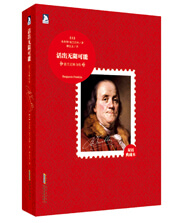第一章 故乡生涯
(1771年,写于都怀伏特镇,圣阿萨夫主教家)
亲爱的孩子:
我一直对收集祖上的各种奇闻逸事相当感兴趣,乐此不疲。我就曾经为了这个目的而四处旅行,你可能还记得,当我们在英国的时候,我就经常向我们家族中的老人们询问、调查有关这个方面的情况。我觉得,同样,你们中的一些人可能也很想知道我的生活情况(就好比我渴望知道我的先人的生活一样),因为这其中的很多事情你们是并不清楚的。正好,我现在有一个星期的休假时间,预计在这一个星期的乡村假期里是没有什么东西会来打扰我的。因而,我可以坐下来把我的生活情况原原本本地告诉你。
其实,写这些东西,我还有另外一个目的。我出身贫贱,幼年成长在贫寒的家庭中,后来才获得了财富,并在这个世界上稍稍享有了一些声誉。上帝保佑,我至今一帆风顺,事事顺意。我的处世之道如此成功,我的后世子孙也许想知道它们,并且找到些和他们的境况相适应的立身之术,然后模仿它们。
当我回望、审视这种幸福的时候,我有时候禁不住会想,如果上帝再给我一次机会的话,我会毫不犹豫地重新度过我的此生,一切从头开始。我只要求像作家那样,在修订版本的时候可以改正初版的某些错误,把某些不幸的事情变得稍微顺利些。但是,要是我的这些要求都不被允许的话,我仍然愿意接受上帝的恩赐,按照我原来的样子重新活一次。事实上,既然这种重来是不可能的,那么最接近这种重演的好像就只有回忆了。为了让这种回忆尽可能地保持久远,就只好把它用笔记下来了。
在这里我将顺着老年人常有的偏好,来谈谈他们自己,谈谈他们过去的所作所为。我这样做,将不会使那些尊敬老人的人感到厌烦,他们往往处于尊敬老人的考虑而被迫听我们唠叨。而将之写下来,他们可以看也可以不看。最后,我还是自己承认吧,因为就算我极力否认也没有人会相信,那就是,写这个自传可以极大地满足我的虚荣心。实际上,我经常听到或在书上看到,在人们说完“我可以毫不夸张地说”之类的开场白之后,紧接着的就是一堆自吹自擂的话。绝大多数人厌恶别人的虚荣,但却不管自己有多么虚夸。但是,无论我在什么地方碰到虚荣,我都会给它一个正确的位置。因为我相信,这样做对这些自负的人来说是有好处的,对其周围受其影响的人来说也不无益处。因此,在很多情况下,一个人在享有生活的种种舒适之外,也仰仗着上帝赐予他的虚荣心也并不是怪诞的。
Chapter 1
Twyford, at the Bishop of St. Asaph's, 1771.
DEAR SON,
I have ever had pleasure in obtaining any little anecdotes of my ancestors. You may remember the inquiries I made among the remains of my relations when you were with me in England, and the journey I undertook for that purpose. Imagining it may be equally agreeable to you to know the circumstances of my life, many of which you are yet unacquainted with, and expecting the enjoyment of a week's uninterrupted leisure in my present country retirement, I sit down to write them for you.
To which I have besides some other inducements. Having emerged from the poverty and obscurity in which I was born and bred, to a state of affluence and some degree of reputation in the world, and having gone so far through life with a considerable share of felicity, the conducing means I made use of, which with the blessing of God so well succeeded, my posterity may like to know, as they may find some of them suitable to their own situations, and therefore fit to be imitated.
That felicity, when I reflected on it, has induced me sometimes to say, that were it offered to my choice, I should have no objection to a repetition of the same life from its beginning, only asking the advantages authors have in a second edition to correct some faults of the first. So I might, besides correcting the faults, change some sinister accidents and events of it for others more favorable. But though this were denied, I should still accept the offer. Since such a repetition is not to be expected, the next thing most like living one's life over again seems to be a recollection of that life, and to make that recollection as durable as possible by putting it down in writing.
Hereby, too, I shall indulge the inclination so natural in old men, to be talking of themselves and their own past actions; and I shall indulge it without being tiresome to others, who, through respect to age, might conceive themselves obliged to give me a hearing, since this may be read or not as any one pleases. And, lastly(I may as well confess it, since my denial of it will be believed by nobody), perhaps I shall a good deal gratify my own vanity. Indeed, I scarce ever heard or saw the introductory words,“Without vanity I may say,”edc., but some vain thing immediately followed. Most people dislike vanity in others, whatever share they have of it themselves; but I give it fair quarter wherever I meet with it, being persuaded that it is often productive of good to the possessor, and to others that are within his sphere of action; and therefore, in many cases, it would not be altogether absurd if a man were to thank God for his vanity among the other comforts of life.
And now I speak of thanking God, I desire with all humility to acknowledge that I owe the mentioned happiness of my past life to His kind providence, which lead me to the means I used and gave them success. My belief of this induces me to hope, though I must not presume, that the same goodness will still be exercised toward me, in continuing that happiness, or enabling me to bear a fatal reverse, which I may experience as others have done: the complexion of my future fortune being known to Him only in whose power it is to bless to us even our afflictions.


